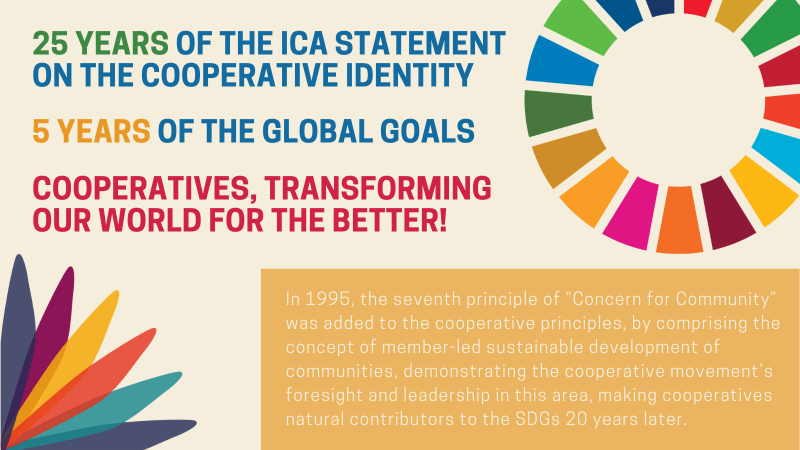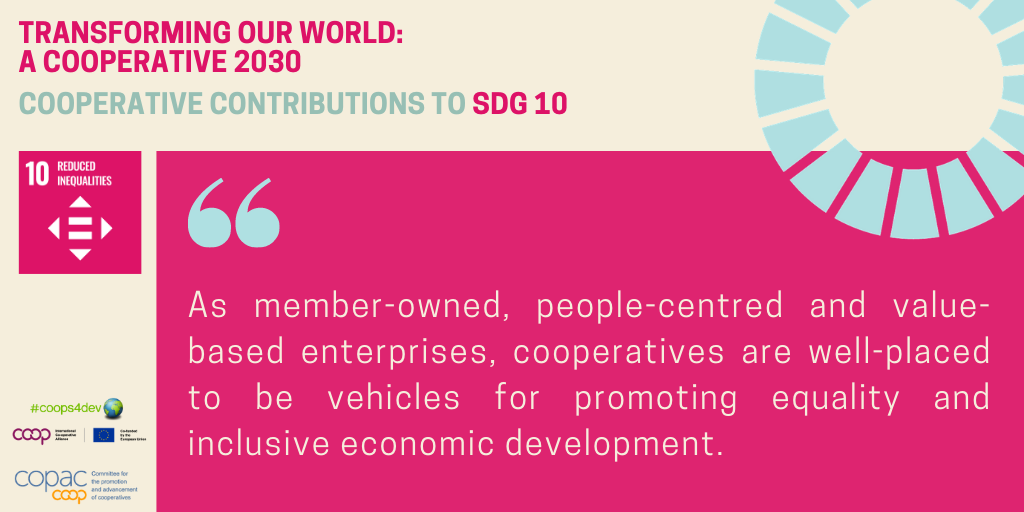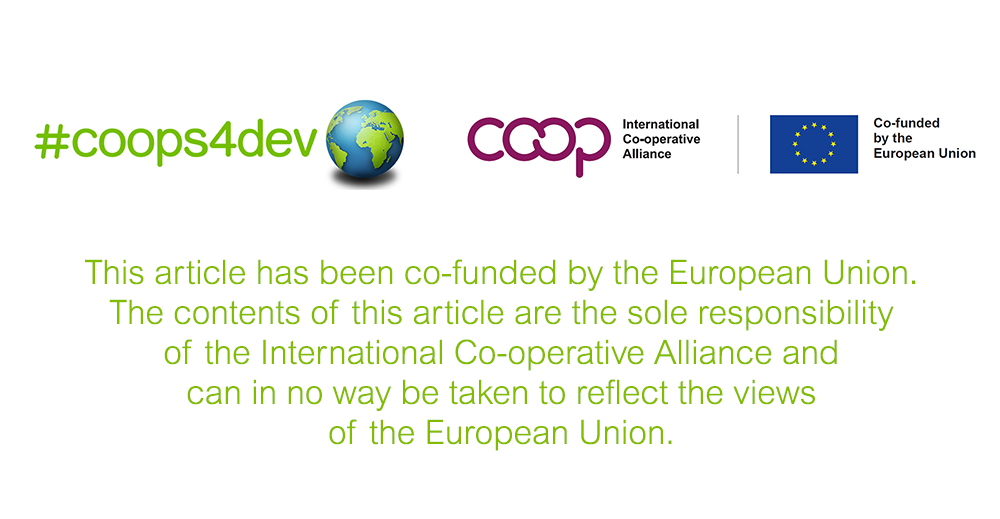
In the week of the 21-25 September 2020 two crucial dates arise from the calendar: the 25th anniversary of the ICA Statement on the Cooperative Identity – that established a common and harmonious identity of cooperatives, including a definition of ethical values and a modified set of seven principles – and the 5 years of the United Nations Global Goals.
Ahead of the 75th UN General Assembly and marking the starting point of the Global Goals Week to bring the SDG Moment to the center of the public discussion, in his inaugural speech UN Secretary-General António Guterres called for an urgent and transformative change to deliver the Sustainable Development Goals by 2030. Commenting on the setback produced by the COVID-19 crisis, he stressed the importance of “transitioning to inclusive, low-carbon, resilient economies that deliver more jobs and a cleaner environment, which will not only reduce the risk of future pandemics but also mitigate the worst effects of climate change”.
It is particularly in the current unprecedent challenging times provoked by the COVID-19 pandemic that the cooperative model arises as a critical actor for change. For a change to align our economies with the Global Goals, which should work as a blueprint to achieve a more sustainable future for all. Relying on the cooperative resilience and collective power, cooperatives can help to convert this crisis into a turning point to build back better.

What makes cooperatives a good partner in the achievement of the Global Goals?
It is precisely the set of values and principles that constitute the cooperative identity what distinguish the cooperative business model from the profit-oriented enterprises. As people-centered and democratically run companies that not only care for their members but for the communities they serve, the cooperative movement represents an organic partner for the advancement of the Agenda 2030.
Cooperatives are undertakings that can thrive sustainability at three levels:
- Economic
- Social
- Environmental
Locally-rooted, aware of the global challenges that impact their communities and aligned with the aspirations of a global movement, cooperatives are guided by solidarity and common values that further enable them to address global problems by offering local solutions.

In other words, ICA President, Ariel Guarco, summarises it as follows: “cooperatives can make differential contributions to the sustainable development agenda. First of all, because we have values and principles that are aligned with the Global Goals. Secondly, because we are rooted in the territories, attentive to the needs of each community, which is ultimately the one taking the lead of its own destiny by means of cooperatives. This contribution has a local impact, but we can also do it on a global scale, given the fact that there are 3 million cooperatives with more than a billion members around the world”.
Transforming our world: a cooperative 2030
In order to carefully examine the contribution by cooperatives to the different Sustainable Development Goals, the Committee for the promotion and advancement of cooperatives (COPAC) has been producing a series of briefings dedicated to each SDG named “Transforming our world: A cooperative 2030”. Not only provides this collection of briefs fundamental insights to understand the value of cooperatives in the implementation of the Agenda 2030 at different levels, but it also offers a very illustrative list of field examples of cooperatives directly contributing to every particular SDG.

Implementing multi-stakeholder cooperation
The SDG17: “Partnerships for the Goals” represents a fundamental goal for the ICA and, more particularly, for the ICA-EU Partnership on cooperative development (also known as #coops4dev), which is a concrete manifestation of multi-stakeholder cooperation. In addition, being “cooperation among cooperatives” the sixth cooperative principle, cooperatives are much aware of the importance of an effective international and multilateral cooperation.





